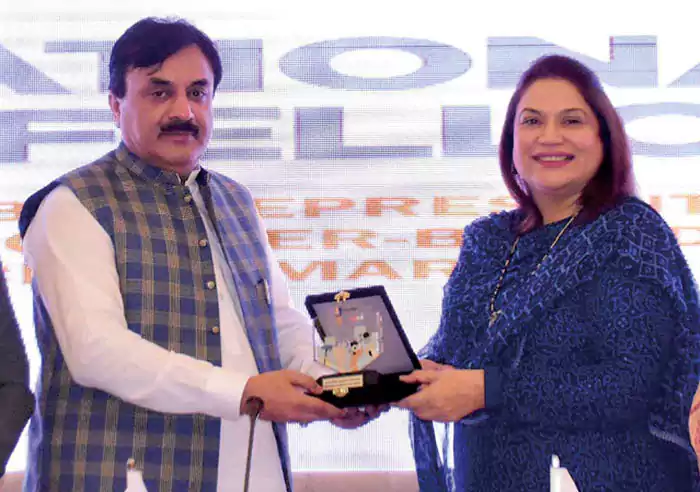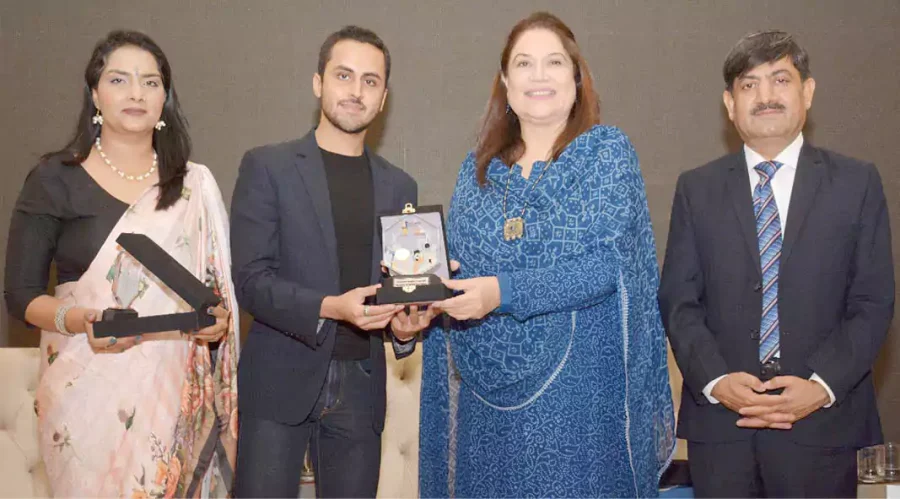Zubair Qureshi
The National Media Fellowship’s second cohort (2023-24) under the National Commission on the Status of Women (NCSW) concluded successfully on Saturday showcasing significant contributions to responsible reporting on gender-based violence and child marriage.
With 39 fellows producing a total of 165 print, digital, television, and radio stories, along with two standalone documentaries, the cohort underwent a one year training and mentoring period. These stories by fellows of NMF-2 highlighted crucial issues such as economic and health challenges, rising violence against women, and the struggles of transgender and marginalized communities.
In her welcome address, Chairperson of the NCSW, Nilofar Bakhtiar expressed her heartfelt gratitude to partners UNFPA and CEJ-IBA for their unwavering support in launching the National Media Fellowship on Women’s Rights. She praised the fellows, stating, “I am immensely proud of you all fellows who have produced 165 impactful stories and two documentaries, shedding light on crucial issues of gender-based violence and child marriage. Their diverse backgrounds, representing all regions of Pakistan, have enriched our initiative. Looking ahead, I encourage all journalists to continue championing women’s rights and addressing gender-based violence and child marriage in their reporting. NCSW is committed to supporting your efforts and will soon be holding national conferences on health, climate change, law reforms, and education. Together, we can drive social change and ensure a better future for all women in Pakistan.”

Deputy Chairman Senate, Syedaal Khan Nasar who was Chief Guest on the occasion commended the efforts of the NCSW in advancing women’s rights. “All of these media fellows have done an outstanding job,” said Syedaal Nasar. “The National Media Fellowship has been crucial in training journalists to report on sensitive issues with professionalism and ethics.
UNFPA’s Country Representative in Pakistan, Luay Shabaneh, emphasized the commitment to advancing gender equality and women’s empowerment through strategic partnerships. “By aligning efforts with the Sustainable Development Goals, particularly Goal 5, UNFPA’s interventions are evidence-based and targeted,” said Shabaneh. “This fellowship has empowered journalists to play a vital role in advocating for women’s rights through their reporting.”
The stories produced by the fellows covered a range of critical topics, including women’s inheritance, challenges faced by transgender individuals, practice of ghugh in KP where random men can claim a woman without her consent, etc.
In the session on ‘Challenging Perceptions: Challenges of Reporting on GBV and Child Marriages in Digital & Electronic Media’ the panelists agreed that digital media was growing at a fast speed and people were switching over to it instead of watching long and tedious talk shows on electronic media. Senior journalist Fahad Hussain urged the young media persons and journalists that it was necessary that besides their professional duties, they should adapt themselves to the new trends i.e. digital media and Facebook page etc. Future belongs to new trends in media and we need to learn how to cope with it. Senior anchorperson, Shaukat Paracha said a journalist loses his/her passion when his/her story is not telecast on media and unfortunately, stories of gender-based violence and child marriage seldom attract the editor’s attraction. Writer and Digital Lead at Pakistan Observer, Abdullah Gauhar Malik was of the view that even digital media needs well-researched content, evidence-based reference and quotes from experts in the relevant field to get viewership. It will be without relevance if it is not connected with the audience, he said.
Laiba Zainab and Najia Mir also shared their experience as digital media journalists.









